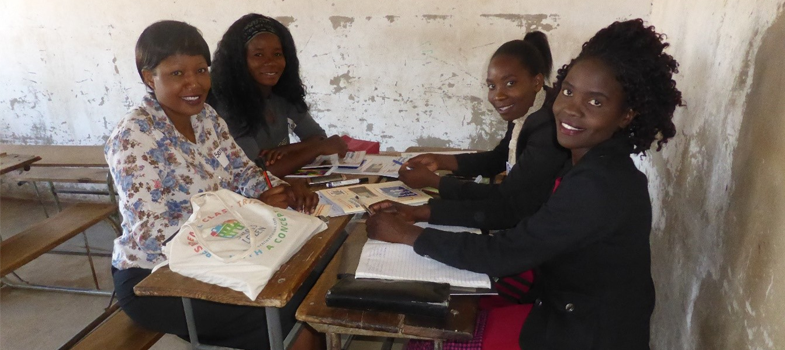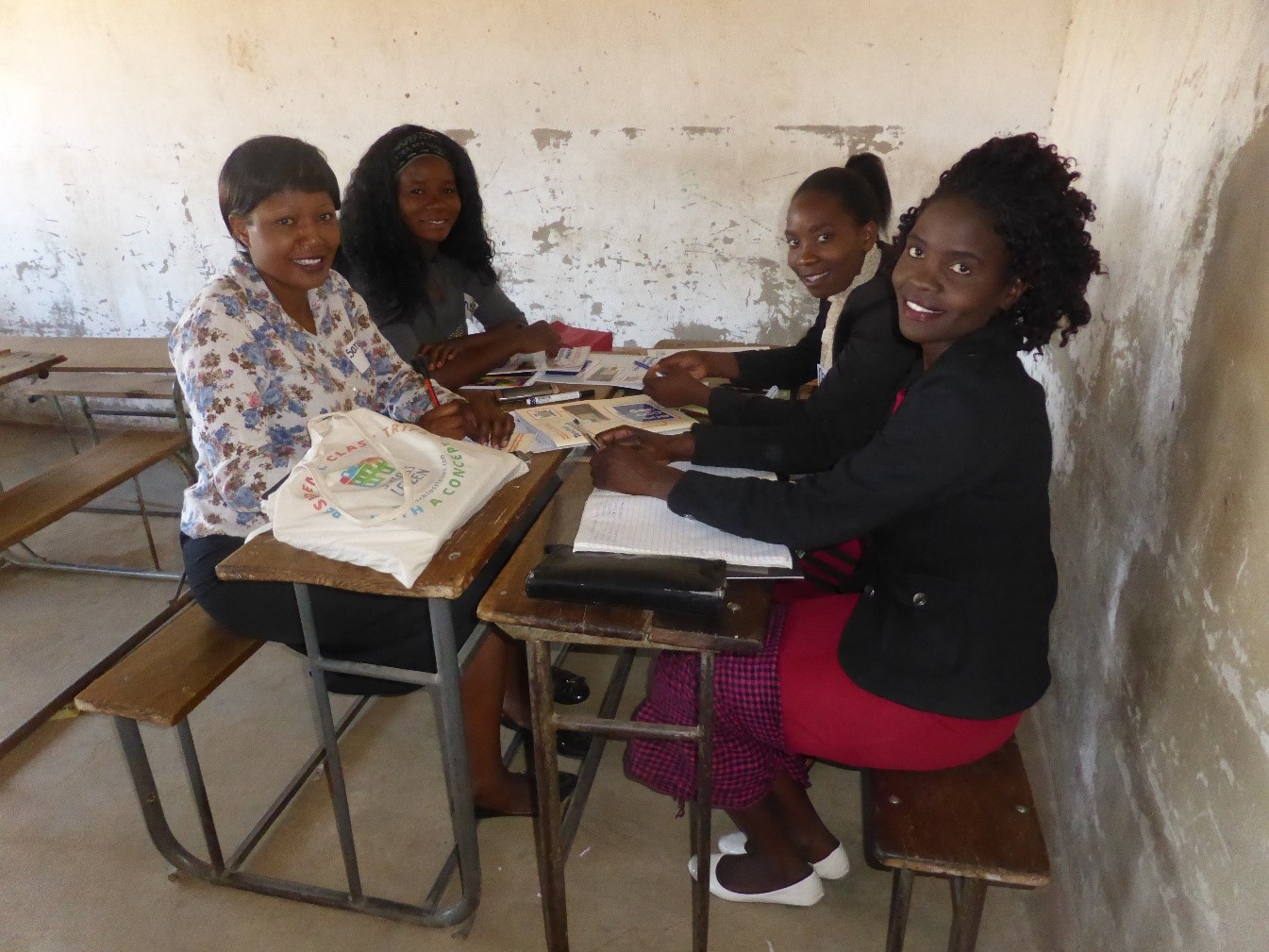Training guide
4. Personal development planning
During this enhanced SPRINT programme, you have been supported to develop a number of skills. These are:
- organising learners into pairs or groups so that they can discuss their ideas
- asking good, open questions which support higher-order thinking
- making creative use of local resources
- using storytelling, role play, songs and games to support learning
- involving all learners in the lesson
- undertaking formative assessment
- giving effective feedback which helps learners develop
- linking the approaches together to plan engaging lessons
- accessing and using TESSA materials
- supporting literacy across the curriculum
- taking part in peer observation
- evaluating and reflecting on your own teaching.
Activity 6.4: Developing skills through sharing good ideasLook at the list of skills above. Look back through your Teacher Notebook and think about one activity or lesson that you are particularly proud of because you made use of some of the skills identified above. Be prepared to share it with colleagues in the next TGM, explaining briefly:
In the TGM, as you listen to your colleagues giving their example, note down any ideas that you think you could use in your own teaching, and over the next few weeks make sure you speak with the teacher who explained the example to explore how you can adapt it to your own lessons.
|
Developing your skills in teaching is a continuous journey. As you meet new classes, or move to a different school, there are always aspects of your work that you can develop further. As you proceed on your journey, keep reminding yourself what is going well and why. You can re-visit any of the resources from the last five courses, or, as you will see in the next section, explore other resources that are available.
In the next activity, you are going to make your own action plan to develop your teaching further.
If a group of you have the same priorities, you may decide to work together next term to support each other in developing that aspect of your teaching. For example, maths and science teachers in your school might be interested in developing skills to support literacy in their lessons, or Grade 2 and 3 teachers might be interested in developing strategies to support the introduction of English language to all learners.
Your head teacher or SIC might also identify a whole school priority and organise some TGMs which focus on that, for example, how to provide formative feedback from peer observations or following on a new MOGE policy. In all these cases, you should continue to maintain the strong collaborative skills developed over the past two years in this programme.
Activity 6.5: Personal development planning: My progress in learner-centred teachingBefore the TGM: Think back to the first course of this programme, and how your teaching has developed over the past five courses:
Copy the table below in your Teacher Notebook. Consider the questions above and complete the first three columns in the table for each approach. If asked for examples, try and give as much detail as possible.
At the TGM: in a group of three to five teachers, compare your table with the others. Think whether you can help anyone who might be struggling with an approach you feel confident with, and whether you can learn from a colleague who has made the most progress with a skill you find more demanding. In the final column, write their name or notes about their example and make sure you speak with them over the next weeks to discuss how you can adapt their example to your teaching. Priorities for next term: Write in your Teacher Notebook your top three priorities for next term and identify where you can get help, and who in your school can help you with these. For example, if you are finding asking good, open questions difficult, go back to course 1. If it is supporting literacy which you need to practise, look at the resources from the previous course. |
||||||||||||||||||||||||||||||||||||||||||||||||||||||||||||

